Member Profiles
CHAIR
Thomas Inglesby, M.D.
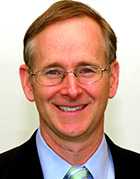
Thomas Inglesby, MD, Chief Executive Officer and Director, Johns Hopkins Center for Health Security, Johns Hopkins Bloomberg School of Public Health
Baltimore, MD
Dr. Inglesby is the Director of the Johns Hopkins Center for Health Security in the Johns Hopkins School of Public Health. The Center is dedicated to protecting people’s health from the consequences of epidemics and disasters and to making communities more resilient to those challenges.
Dr. Inglesby’s work is internationally recognized in the fields of public health preparedness, pandemic and emerging infectious disease, and prevention of and response to biological threats. He is Chair of the Board of Scientific Counselors, Office of Public Health Preparedness and Response, US Centers for Disease Control and Prevention (CDC). He is also Chair of the National Advisory Council of the Robert Wood Johnson Foundation’s National Health Security Preparedness Index. He was a member of the External Laboratory Safety Workgroup appointed by the CDC Director that examined biosafety practices of the CDC, the National Institutes of Health (NIH), and the Food and Drug Administration (FDA). He was on the 2016 Working Group assessing US biosecurity on behalf of the President’s Council of Advisors on Science and Technology (PCAST). He has served on committees of the Defense Science Board, the National Academies of Sciences, the Institute of Medicine, and in an advisory capacity to NIH, BARDA, DHS, and DARPA.
Dr. Inglesby has authored or co-authored more than 100 publications, including peer-reviewed research, original reports, and commentaries on issues related to health security and preparedness for epidemics, biological threats, and disasters. He is Editor-in-Chief of the peer-reviewed journal Health Security. He was a principal editor of the JAMA book Bioterrorism: Guidelines for Medical and Public Health Management. He is a member of the Board of Directors of PurThread, a company dedicated to developing antimicrobial textiles.
Dr. Inglesby completed his internal medicine and infectious diseases training at Johns Hopkins University School of Medicine, where he also served as Assistant Chief of Service in 1996-97. Dr. Inglesby received his MD from Columbia University College of Physicians and Surgeons and his BA from Georgetown University. He continues to see patients in a weekly infectious disease clinic.
MEMBERS
Margaret L. Brandeau, Ph.D.
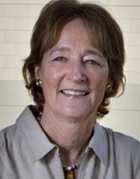
Margaret L. Brandeau, PhD, Coleman F. Fung Professor in the School of Engineering, Department of Management Science and Engineering, and Professor (by Courtesy) of Medicine, Stanford University Stanford, California
Margaret L. Brandeau’s research focuses on the development of applied mathematical and economic models to support health policy decisions. Her recent work has examined HIV and drug abuse prevention and treatment programs, programs to control the spread of hepatitis B virus, and preparedness plans for bioterror response. In addition to serving on the Board of Scientific Counselors of Office of Public Health Preparedness and Response, she also serves on the National Academies of Sciences, Engineering, and Medicine Standing Committee for the Centers for Disease Control and Prevention Division of the Strategic National Stockpile. She has published two books and more than 100 peer-reviewed papers. She is a Fellow of the Institute for Operations Research and Management Science and has received numerous awards for her research and teaching. Professor Brandeau earned a BS in Mathematics and an MS in Operations Research from MIT, and a PhD in Engineering-Economic Systems from Stanford.
Sandro Galea, M.D., M.P.H., Dr.P.H.
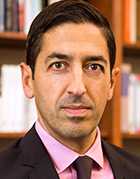
Sandro Galea, MD, MPH, DrPH, Dean, School of Public Health, Boston University Boston, Massachusetts
Sandro Galea, a physician and an epidemiologist, is dean and Robert A. Knox Professor at Boston University School of Public Health. He previously held academic and leadership positions at Columbia University, the University of Michigan, and the New York Academy of Medicine. In his scholarship, Galea is centrally interested in the social production of health of urban populations, with a focus on the causes of brain disorders, particularly common mood-anxiety disorders and substance abuse. He has long had a particular interest in the consequences of trauma, including firearms. He has published more than 650 scientific journal articles, 50 chapters, and 12 books, and his research has been featured extensively in current periodicals and newspapers. His latest book, Healthier: Fifty Thoughts on the Foundations of Population Health will be published by Oxford University Press in 2017. Galea holds a medical degree from the University of Toronto and graduate degrees from Harvard University and Columbia University. He also holds an honorary doctorate from the University of Glasgow. Galea was named one of Time magazine’s epidemiology innovators, and has been listed by Thomson Reuters as one of the “World’s Most Influential Scientific Minds” for the social sciences. He is past president of the Society for Epidemiologic Research and an elected member of the National Academy of Medicine and the American Epidemiological Society. Galea has received several lifetime achievement awards for his research, including the Rema Lapouse Award from the American Public Health Association and the Robert S. Laufer, PhD, Memorial Award from the International Society for Traumatic Stress Studies. He is a regular contributor to Fortune magazine and has published widely in the lay press, including the Wall Street Journal, Harvard Business Review, the Boston Globe, and The New York Times. His research has been cited by these publications as well as BBC, Slate, WBUR, and NPR, among others.
Erika James, Ph.D., M.A

Erika James, PhD, MA, John H. Harland Dean, Goizueta Business School, Emory University Atlanta, Georgia
Erika James became the John H. Harland Dean of Goizueta Business School in July 2014. A published researcher and award-winning educator with a passion for consulting and speaking, she places an emphasis on what higher education can do to be of service to industry.
Before arriving at Goizueta, James served as the Senior Associate Dean for Executive Education at the Darden Graduate School of Business. She also served as an assistant professor at Tulane University’s Freeman School of Business, and a visiting professor at Harvard Business School. Her academic career includes involvement in diversity initiatives and membership on multiple university councils and committees.
James has been instrumental in starting various Executive Education programs, including the Women’s Leadership program at Darden. She sits on the board of the Association to Advance Collegiate Schools of Business (AACSB), the foremost accrediting body in business education. James speaks at numerous conferences in the areas of leadership, organizational effectiveness, change management and diversity. James’ expertise in workplace diversity and crisis leadership has led to recognition in scholarly journals and mainstream media.
James is a member of the Leadership Atlanta Class of 2016 and, shortly after becoming dean, was named to the “Power 100” list of Ebony Magazine. In 2014, she was honored by the National Diversity Council.
James holds a Ph.D. and Master’s degree in organizational psychology from the University of Michigan. She received a Bachelor’s degree in psychology from Pomona College of the Claremont Colleges in California.
Suzet McKinney, Dr.P.H., M.P.H.

Suzet McKinney, DrPH, MPH CEO/Executive Director, Illinois Medical District Chicago, Illinois
Dr. Suzet M. McKinney currently serves as Executive Director of the Illinois Medical District that includes 560 acres of medical research facilities, labs, a biotech business incubator, universities, raw land development areas and more than 40 healthcare related facilities. Dr. McKinney is the former Deputy Commissioner of the Bureau of Public Health Preparedness and Emergency Response at the Chicago Department of Public Health (CDPH), where she oversaw the emergency preparedness efforts for the Department and coordinated those efforts within the larger spectrum of the City of Chicago’s Public Safety activities.
Dr. McKinney serves on numerous committees and advisory boards. Most recently, she was appointed to the Board of Directors for Thresholds, Good City Chicago and the African-American Legacy of the Chicago Community Trust. Dr. McKinney is Co-Chair of the National Academies of Science, Engineering and Medicine, Institute of Medicine’s (IOM) Forum on Medical and Public Health Preparedness for Disasters and Emergencies and is a member of the IOM’s Standing Committee on Health Threats Resilience.
In academia, Dr. McKinney serves as an Instructor in the Division of Translational Policy and Leadership Development at Harvard University’s T.H. Chan School of Public Health and as Adjunct Assistant Professor of Environmental and Occupational Health Sciences at the University of Illinois at Chicago School of Public Health. She also serves as a mentor for the Biomedical Sciences Careers Project, also at Harvard University.
Dr. McKinney holds her Doctorate degree from the University of Illinois at Chicago School of Public Health, with a focus on preparedness planning, leadership and workforce development. She received her Bachelor of Arts in Biology from Brandeis University (Waltham, MA) where she was also a Howard Hughes Medical Institute Fellow. She received her Master of Public Health degree (Health Care Administration) and certificates in Managed Care and Health Care Administration from Benedictine University in Lisle, IL.
Ian I. Mitroff, Ph.D.
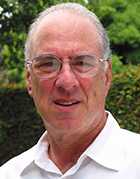
Ian I. Mitroff, PhD, Professor Emeritus, USC, Senior Research Associate, Center for Catastrophic, Risk Management, Haas School of Business, University of California, Berkeley Oakland, California
Dr. Ian I. Mitroff is a Senior Investigator in the Center for Catastrophic Risk Management, University of California, Berkeley. He is Professor Emeritus from the Annenberg School of Communication and the Marshall School of Business, University of Southern California, where he was the Harold Quinton Distinguished Professor of Business Policy. He is the President of the consulting firm Mitroff Crisis Management.
Dr. Mitroff is regarded as the founder of the discipline of Crisis Management. He was the founder and director of the USC Center for Crisis Management. Known for his thinking and writing on a wide range of business and societal issues, Dr. Mitroff is the author of 37 books, including “Swans, Swine, and Swindlers: Coping with the Growing Threat of Mega Messes and Mega Crises,” “Dirty Rotten Strategies: How We Trick Ourselves and Others into Solving the Wrong Problems Precisely,” “A Spiritual Audit of Corporate America,” “Smart Thinking for Crazy Times,” “The Essential Guide to Managing Corporate Crisis,” “The Unbounded Mind” and “Managing Crises Before They Happen.” More recently, he and his wife Donna have written “Fables and the Art of Leadership: Applying the Wisdom of Mister Rogers to the Workplace.” He is also a frequent blogger for the Huffington Post.
Dr. Mitroff is a Fellow of the American Psychological Association, the American Association for the Advancement of Science, and the American Academy of Management. He has an honorary PhD from the University of Stockholm. He is the recipient of a gold medal from the UK Systems Society.
Dr. Mitroff has a B.S in Engineering Physics, an M.S. in Structural Engineering, and a PhD in Industrial Engineering, all from the University of California at Berkeley. His minor for the PhD was in the Philosophy of Social Systems Science.
Brent Pawlecki, M.D.
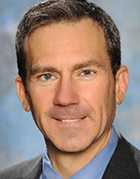
Brent Pawlecki, MD, Chief Health Officer, The Goodyear Tire & Rubber Company Akron, Ohio
Dr. Brent Pawlecki is the Chief Health Officer at The Goodyear Tire & Rubber Co., a position he has held since 2011. His responsibilities in this role include global health strategy, providing leadership for Goodyear’s medical clinics, fitness facilities, health benefits, health improvement and wellness programs, Employee Assistance Programs, and health related emergencies.
Prior to his current role, he was the Corporate Medical Director at Pitney Bowes, overseeing all health-related issues for the organization, including the Pitney Bowes’ award winning corporate clinics, wellness programs and absence management department, and served as the Chief HIPAA Privacy Officer.
During his career, he worked in a private medical practice as well as the Emergency Department. He attended college and medical school at St. Louis University and completed a combined residency in Internal Medicine and Pediatrics from Bridgeport Hospital and Yale University. He also completed the Master of Medical Management Business Degree from the University of Southern California.
Dr. Pawlecki received the 2015 Global Leadership in Corporate Health Award, recognizing his career focused on developing and promoting workplace health programs. He is involved with numerous organizations, including the National Business Group on Health, National Committee for Quality Assurance (NCQA), and the Coalition to Transform Advanced Care. His current focus works toward improvements in health quality, global health, advanced illness and end of life care.
Alonzo L. Plough, Ph.D., M.P.H.
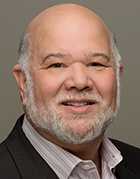
Alonzo L. Plough, PhD, MPH, Vice President for Research and Evaluation and Chief Science Officer, Robert Wood Johnson Foundation Princeton, New Jersey
Alonzo L. Plough, PhD, MPH, joined the Robert Wood Johnson Foundation as vice president, Research-Evaluation-Learning and chief science officer in January 2014. He leads the Foundations long standing focus on building the evidence base to foster innovation in health services and systems and improve population health. He is also responsible for Foundation-wide organizational learning and the two program areas that support those activities, the global and pioneer teams.
Dr. Plough brings to the Foundation his extensive leadership experience in public health, most recently at the Los Angeles County Department of Public Health. Plough also served 10 years as director and health officer for the Seattle and King County Department of Public Health and before that served as director of public health in Boston for eight years.
Dr. Plough served as vice president of strategy, planning and evaluation for The California Endowment, a Los Angeles based health foundation from 2005–2009. He led the Endowment’s strategic planning and development, evaluation, research, and organizational learning activities.
His academic career includes his current appointment as professor of health services at the University of Washington, School of Public Health in Seattle and previous faculty positions at Harvard University School of Public Health, Tufts University Department of Community Medicine, and Boston University School of Management. He has been the recipient of numerous awards for public service and leadership and is the author of an extensive body of scholarly articles, books, and book chapters.
Plough earned his PhD and MA at Cornell University, and his MPH at Yale University School of Medicine’s Department of Epidemiology and Public Health. He did his undergraduate work at St. Olaf College, where he earned a BA.
Catherine C. Slemp, M.D., M.P.H.
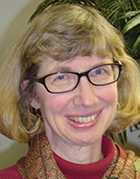
Catherine C. Slemp, MD, MPH, Consultant, Public Health Policy and Practice Milton, West Virginia
Dr. Cathy Slemp is in private practice as a public health consultant working with organizations at community, state and national levels. Dr. Slemp previously served as West Virginia’s State Health Officer. Concurrently, she served as state Emergency Preparedness Director with the West Virginia Bureau for Public Health. In 2008-09 she chaired ASTHO’s Directors of Public Health Preparedness. She has also worked extensively in risk communication, serving as lead agency spokesperson for a wide variety of public health emergencies. Prior to these roles, she was the founding director of the state’s Division of Infectious Disease Epidemiology. Throughout her career, Dr. Slemp has worked closely with public health agencies, health care facilities, and other partners to build both epidemiology and emergency preparedness infrastructure within communities.
Dr. Slemp’s current activities include serving as an action-learning coach for the Public Health Institute’s National Leadership Academy for the Public’s Health, working with multi-sector teams to advance health equity in communities. She also continues to work on various efforts to both model, measure, and advance our nation’s health security and resilience. In addition, to the Board of Scientific Counselors, Dr. Slemp serves on the National Preparedness and Response Science Board, US Department of Health and Human Services, Assistant Secretary for Preparedness and Response.
Dr. Slemp is board certified in both Public Health / Preventive Medicine and in Family Practice. She undertook her medical training at Duke University, her Preventive Medicine Residency and MPH at Johns Hopkins’ Bloomberg School of Public Health, and her Family Practice Residency at St. Margaret Memorial Hospital in Pittsburgh, PA. She received her bachelor’s degree from Princeton University and has undertaken leadership training through both the Southeast and National Public Health Leadership Institutes.
Kasisomayajula Viswanath, Ph.D., M.A., M.C.J.
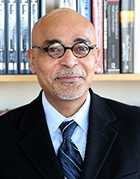
Kasisomayajula Viswanath, PhD, MA, MCJ, Lee Kum Kee Professor of Health Communication, Department of Social and Behavioral Sciences, Harvard T.H. Chan School of Public Health and McGraw-Patterson Center for Population Sciences at the Dana Farber Cancer Institute Boston, Massachusetts
Dr. K. “Vish” Viswanath is also the Faculty Director of the Health Communication Core of the Dana-Farber/Harvard Cancer Center (DF/HCC). He is the founding Director of DF/HCC’s Enhancing Communications for Health Outcomes (ECHO) Laboratory. He chairs the Steering Committee for the Health Communication Concentration (HCC) at HSPH and teaches health communication courses within this concentration.
Dr. Viswanath’s work, focuses on translational communication science to influence public health policy and practice. He has written more than 200 journal articles and book chapters concerning communication inequalities and health disparities, knowledge translation, public health communication campaigns, e-health and digital divide, public health preparedness and the delivery of health communication interventions to underserved populations. Dr. Viswanath has received awards including the Joseph W. Cullen Memorial Award For Excellence in Tobacco Research, American Society for Preventive Oncology (2014), the Dale Brashers Distinguished Mentorship Award, National Communication Association (2013), Outstanding Health Communication Scholar Award (2010) jointly given out by the International Communication Association and the National Communication Association and the Mayhew Derryberry Award from the American Public Health Association (APHA) for his contribution to health education research and theory (2009). He was a member of the National Vaccine Advisory Committee (NVAC) of the U. S. Department of Health & Human Services and Chaired its Working Group on Vaccine Acceptance (2012-2016) and is a member of the Board of Scientific Counselors, Office of Public Health Preparedness, CDC. His research is supported by funding from private and public agencies including the National Institutes of Health (NIH) and the Centers for Disease Control and Prevention (CDC).
Dawn Patricia Wooley, Ph.D.
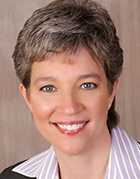
Dawn Patricia Wooley, PhD, SM [NRCM], RBP, CBSP, Associate Professor, Department of Neuroscience, Cell Biology, and Physiology, Wright State University Dayton, Ohio
Dawn P. Wooley, PhD, SM[NRCM], RBP, CBSP is an Associate Professor at Wright State University and a certified biosafety professional. Her research expertise includes the molecular mechanisms of HIV mutation, recombination, and pathogenesis, the use of viral vectors for gene transfer, and the biosafety of viral vectors in laboratory and animal research. Dr. Wooley conducted postdoctoral research with Nobel Laureate Howard Temin at the University of Wisconsin. She earned her Ph.D. degree in Virology from Harvard and an honors B.S. degree in Microbiology from The Pennsylvania State University.
EX OFFICIO MEMBERS
Department of Defense
Jody R. Wireman, Ph.D., M.S.P.H., M.P.A.
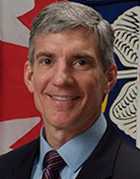
Jody R. Wireman, PhD, MSPH, MPA, CIH, DABT HQ NORAD-USNORTHCOM, Director, SG Force Health Protection Peterson AFB, CO
Dr. Jody R. Wireman has over 25 years of experience as a public health professional, manager, and educator. He is currently the Director of Force Health Protection (FHP) at the North American Aerospace Defense Command (NORAD) and U.S. Northern Command (USNORTHCOM). Dr. Wireman provides leadership, management, and expertise in occupational, environmental, and Chemical, Biological, Radiological, and Nuclear (CBRN) FHP and Health Service Support to the Commander and Surgeon. He also supports other agencies for refinement of medical and public health needs for homeland defense and civil support missions. Dr. Wireman and his staff directly support development of deliberate and crisis action plans for NORAD and USNORTHCOM for mission assurance and consequence management responses throughout North America.
Dr. Wireman is playing a key role in developing the DOD medical capabilities and associated Commander’s estimate for homeland defense and civil support missions. This includes identifying FHP requirements and guidance for the 18,000 member DOD CBRN Response Enterprise and follow on forces. He led a multi-year, multi-million dollar effort to develop an integrated, interagency approach and tool to determine medical and public health resource requirements and alignment of assets. Dr. Wireman contributes to his profession through participation in public health organizations, authoring journal and book articles, and volunteering as an expert on human and environmental health projects.
Prior to his current assignment, Dr. Wireman was a toxicologist, and human and ecological health scientist at the U.S. Air Force School of Aerospace Medicine. His previous efforts focused on worker health protection and environmental restoration of radiologically- and chemically-contaminated hazardous waste sites. Dr. Wireman worked with representatives from the local to National levels (including Tribal Nations and regulators), and community members and academia in identifying health risks and cleanup options, and evaluating toxicity of chemicals and products of military significance.
Department of Health & Human Services
Jack Herrmann, M.S.Ed.
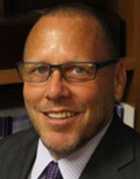
Jack Herrmann, MSEd, NCC, LMHC, Deputy Director, Office of Policy and Planning (OPP), Office of the Assistant Secretary for Preparedness and Response (ASPR) Washington, DC
Jack Herrmann is a Supervisory Health Scientist and Deputy Director, Office of Policy and Planning, with the Office of the Assistant Secretary for Preparedness and Response at the U.S. Department of Health and Human Services (HHS). His responsibilities include providing strategic leadership, direction, and oversight of a team of approximately100 full-time federal employees and contract staff; providing programmatic representation and leadership in policy discussions, meetings, and negotiations with officials and staff from other departments within HHS, other federal agencies, the White House, Congress, and public and private stakeholders; serving as a liaison to selected medical, science, and private-sector professional organizations, informing these organizations about emerging U.S. governmental policies; serving on governmental task forces, working groups, and committees on public health emergency preparedness policies; and undertaking specific leadership tasks such as coordinating cross-agency international programs for HHS to implement the U.S. governmental global health goals and representing HHS on U.S. Delegations to international and regional meetings.
Prior to his work with HHS, Mr. Herrmann served as senior program officer on the Board on Health Sciences Policy at the National Academies of Sciences, Engineering, and Medicine (formerly the Institute of Medicine); Senior Advisor & Chief, Public Health Programs at the National Association of County and City Health Officials (NACCHO); and in a variety of academic and programmatic leadership positions at the University of Rochester Medical Center including Assistant Professor of Psychiatry and Clinical Nursing, Director of the Department of Psychiatry’s Community and Consumer Affairs division, Director of the University’s Employee Assistance Program, and Coordinator of the Center for the Study of Suicide Prevention. Mr. Herrmann also has almost 25 years of volunteer experience in disaster relief operations management and disaster mental health response with the American Red Cross.
Mr. Herrmann’s academic background includes a master’s degree in education in counseling, family, and work life studies from the University of Rochester. He is certified by the National Board of Certified Counselors (NBCC) and a licensed mental health counselor in the State of New York.
Department of Homeland Security
J. Bradley Dickerson, Ph.D.
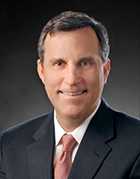
J. Bradley Dickerson, PhD, Chief Science Officer, Office of Health Affairs, Department of Homeland Security Washington, DC
J. Bradley Dickerson, Ph.D. is currently the Director of Chemical Security Policy and Senior Science Policy Advisor at the United States Department of Homeland Security (DHS) where he is responsible for the development and implementation of policies associated with chemical defense, pandemic preparedness and infectious disease-related border issues. At the Centers for Disease Control and Prevention (CDC), Dr. Dickerson led the policy and strategy component of the Office of Public Health Preparedness and Response (OPHPR). He served as an advisor at the United States Senate to Senator Corker on foreign relations and national security issues.
Dr. Dickerson came to DHS in 2007 as an American Association for the Advancement of Science (AAAS) National Defense and Global Security Fellow. Before entering government service he was a structural biologist at St. Jude Children’s Research Hospital where he studied the three-dimensional structures of proteins associated with childhood cancers and neurodegenerative diseases. Prior to that he worked as a pharmaceutical chemist at Schering-Plough Health Care Products. Dr. Dickerson holds degrees in Chemistry (BS), Biomedical Engineering (MS) and Biochemistry (PhD).
LIAISON REPRESENTATIVES
Association of Public Health Laboratories: Christina Egan, Ph.D.

Christina Egan, PhD, CBSP, Association of Public Health Laboratories (APHL) Chief, Biodefense Laboratory, Wadsworth Center, New York State Department of Health Albany, NY
The ability to rapidly detect and respond to the intentional release of pathogens and toxins is vital in protecting the health and well-being of New Yorkers. The intentional release of Bacillus anthracis through the US Postal Service in 2001 highlighted the need for improved diagnostics in the field of Biodefense. Research at the Biodefense Laboratory focuses on the development of diagnostics for the detection of biothreat agents using platforms such as real-time PCR, DNA sequencing, and microsphere immunoassay and nucleic acid arrays.
Characterization and identification of biothreat agents is performed through analysis of multiple and varied sample types such as clinical specimens, food, water, powders, and other environmental samples. Often, these samples can be difficult to test and specialized protocols are necessary in order to perform nucleic acid testing. This work includes the development and validation of assays that can detect agents such as C. botulinum neurotoxins, Staphylococcal enterotoxins, Orthopoxviruses, Francisella tularensis, Brucella spp. Bacillus anthracis, Ricin toxin, and Yersinia pestis in different samples types in a multiplex format. Additional interests include the evaluation of biothreat samples.
In addition to serving as the Director of the Biodefence Laboratory at Wadsworth, Dr. Egan serves as Faculty Member and as the Director of Scientific Education, at the Wadsworth School of Laboratory Sciences.
Association of Schools and Programs of Public Health
Vacant
Association of State and Territorial Health Officials: Marissa Levine, M.D., M.P.H.
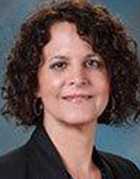
Marissa J. Levine, MD, MPH, FAAFP, Association of State and Territorial Health Officials (ASTHO), State Health Commissioner, Virginia Department of Health Richmond, VA
Dr. Marissa Levine was appointed Virginia State Health Commissioner by Governor Terry McAuliffe in 2014. Dr. Levine previously held the positions of Chief Deputy Commissioner for Public Health and Preparedness and Deputy Commissioner for Public Health and Preparedness since February 2009. Prior to this role, Dr. Levine directed local health departments in two districts within Virginia since 2002.
Dr. Levine is a board-certified family physician, with a Masters of Public Health (MPH) from the Johns Hopkins Bloomberg School of Public Health. She received her MD from the Albert Einstein College of Medicine in Bronx, NY and completed family practice residency training at the University of Virginia in Charlottesville. Dr. Levine started her career in private medical practice in Pennsylvania. She subsequently joined the staff of an academic medical center and became the director of a family practice residency training program in northwestern Pennsylvania. While in Pennsylvania, Dr. Levine was also very involved in community health improvement efforts and was a member of the local board of health.
Council of State and Territorial Epidemiologists: Patricia Quinlisk, M.D., M.P.H.

Patricia Quinlisk, MD, MPH., Council of State and Territorial Epidemiologists (CSTE), Medical Director and State Epidemiologist, Iowa Department of Public Health Des Moines, IA
Dr. Quinlisk is the Medical Director and State Epidemiologist at the Iowa Department of Public Health. Her background includes training as a clinical microbiologist, training microbiologists while a Peace Corps Volunteer in Nepal, a Masters of Public Health from Johns Hopkins, a medical degree from the University of Wisconsin, and training as a field epidemiologist in the CDC’s Epidemic Intelligence Service. For twelve years she conducted epidemiologic training courses in Europe, and is a professor at the University of Iowa, the University of Wisconsin, Des Moines University, and Iowa State University. She is an Editorial Board Member for CDC’s MMWR and on CDC’s Board of Scientific Advisors (Office of Public Health Preparedness and Response). She has also served on the National Vaccine Advisory Committee, the Advisory Panel to Assess Domestic Response Capabilities for Terrorism, and as President of the Council of State and Territorial Epidemiologists (CSTE). She was on the Institute of Medicine’s committees on Microbial Threats to Health in the 21st Century, Animal Health at the Crossroads, Preparing for the Psychological consequences of Terrorism, and Antivirals for Pandemic Influenza.
In 2009 she received an honorary Doctorate of Science from Iowa State University, and for 5 years served as chair for the National Biodefense Science Board.
National Association of County and City Health Officials: Michele Askenazi, M.P.H., CHES
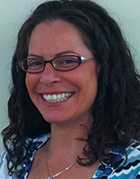
Michele Askenazi, MPH, CHES, National Association of County and City Health Officials (NACCHO), Director of Emergency Preparedness and Response, Tri-County Health Department Greenwood Village, CO
Michele Askenazi is the Director of Emergency Preparedness and Response for the Tri-County Health Department (TCHD), the largest local health department in the State of Colorado. She has been working in Public Health Emergency Preparedness and Response at TCHD for over 10 years. Michele has served in a lead role for many response related efforts and has established a Public Health Incident Management Team (PHIMT) for TCHD to enhance their depth and skills to provide management to all-hazards incidents, whether TCHD serves in a lead or support role. Further, she has been key to the development of the ESF #8 system in place for the TCHD jurisdiction of Adams, Arapahoe and Douglas Counties, where TCHD serves as the ESF #8 lead if activated by their partners in Emergency Management.
Michele manages the Emergency Preparedness and Response program along with the Syndromic Surveillance program at TCHD. Michele serves as the Chair of the NACCHO Surge Management Workgroup and is a member of the NACCHO Preparedness Policy Advisory Group and serves as the NACCHO liaison to the CDC OPHPR Board of Scientific Counselors.
Before coming to TCHD, Michele first served as an Epidemiologist for the Michigan Department of Community Health and worked in HIV Surveillance. She then served first as an Epidemiologist in Chronic Disease and Injury Prevention and then as a Research Analyst for the Bioterrorism Program at the Orange County Health Care Agency in Orange County, California.
Tribal Epidemiological Centers
Vacant
DESIGNATED FEDERAL OFFICIAL
Sam Groseclose, DVM, MPH, DACVPM
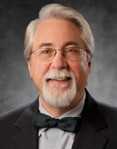
Associate Director of Science and Public Health Practice
Designated Federal Officer, OPHPR Board of Scientific Counselors
Sam Groseclose, DVM, MPH, DACVPM
Dr. Sam Groseclose is Associate Director for Science (ADS) in the Office of Public Health Preparedness and Response (OPHPR) at the Centers for Disease Control and Prevention (CDC). He leads the Office of Science and Public Health Practice (OSPHP) which promotes the application of science to improve public health preparedness and response practice. Sam is the Designated Federal Officer for OPHPR’s Board of Scientific Counselors (BSC) and provides guidance for and oversight of science quality and integrity functions and the activities of OPHPR’s Office of Applied Research. Prior to joining OPHPR, Dr. Groseclose was the ADS in CDC’s Division of Notifiable Diseases and Healthcare Information and contributed to the leadership and management of the BioSense Program, an all-hazard, near real-time electronic syndromic surveillance system, and the National Notifiable Diseases Surveillance System (NNDSS) and directed surveillance evaluation projects. He has served as chief of the Statistics and Data Management Branch in the Division of STD Prevention, CDC and chief of the Surveillance Systems Branch in CDC’s Epidemiology Program Office responsible for the NNDSS, the 122 Cities Mortality Reporting System, and the Medical Examiner and Coroner Information Sharing Program. Dr. Groseclose has over 30 years of experience in public health surveillance and informatics at the city, state, and federal public health system levels.
- Page last reviewed: August 8, 2017
- Page last updated: August 8, 2017
- Content source:


 ShareCompartir
ShareCompartir